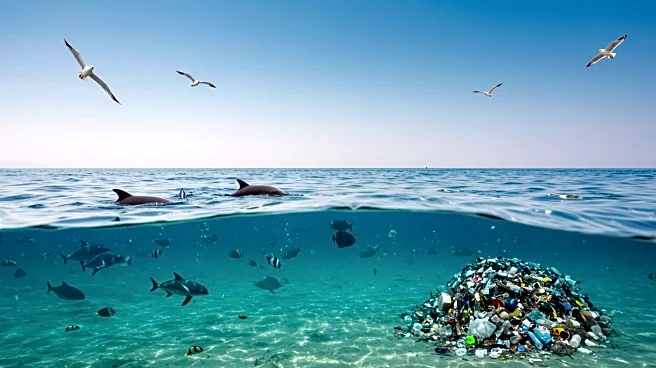What's Happening?
Negotiations for a global treaty to address plastic pollution concluded in Geneva without reaching a consensus. Delegates from various countries expressed disappointment over the lack of progress, with some blaming a small number of states for blocking the agreement. The talks aimed to establish the world's first legally binding treaty to tackle plastic pollution, but deep divisions over production caps and management of plastic products hindered progress. The European Union and small island states advocated for capping virgin plastic production, facing opposition from petrochemical-producing countries and the U.S.
Why It's Important?
The failure to reach an agreement on a plastic pollution treaty highlights the challenges in addressing one of the world's major environmental issues. Plastic pollution has significant impacts on ecosystems, wildlife, and human health, making it a critical concern for global environmental policy. The stalled negotiations reflect the complexities of balancing economic interests, particularly those of petrochemical-producing nations, with environmental sustainability. The outcome of these talks could influence future international efforts to combat plastic pollution and shape environmental policies worldwide.
What's Next?
The path forward for the treaty negotiations remains uncertain, with some countries advocating for continued discussions while others question the effectiveness of the current process. The European Union and other proponents of the treaty are likely to push for renewed efforts to reach an agreement. The international community will need to address the divisions and find common ground to advance the treaty and tackle plastic pollution effectively.











